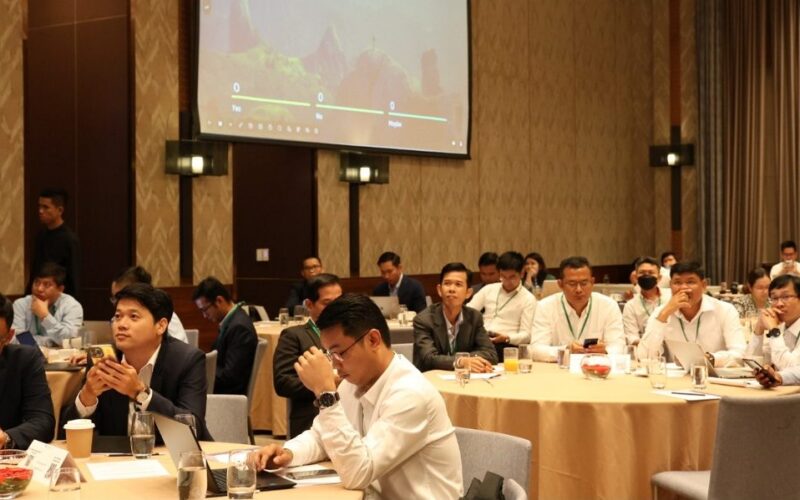The International Finance Corporation (IFC) has teamed up with the Association of Banks in Cambodia (ABC) to enhance the capabilities of local financial institutions in addressing climate change impacts. This collaboration aims to strengthen Cambodia’s climate finance efforts as the country faces growing environmental challenges and aims for carbon neutrality by 2050.
According to the World Bank-IFC Cambodia Country Climate and Development Report (CCDR), Cambodia requires an estimated $36 billion in additional investments between 2023 and 2050 to meet its climate goals. To help meet this need, IFC organised a training session on October 17, which attracted over a hundred banking professionals. The training focused on equipping participants with the tools and knowledge necessary to drive sustainable finance initiatives, as part of broader efforts with the National Bank of Cambodia (NBC) to develop green finance through capital markets. Topics included Cambodia’s evolving Sustainable Finance Taxonomy and Environmental and Social Risk Management Guidelines, aimed at helping financial institutions better support sustainable finance practices.
Towfiqua Hoque, IFC’s newly appointed Resident Representative for Cambodia said, “The importance of sustainable finance cannot be overstated. It is not just about mitigating risks associated with climate change but also about seizing opportunities that come with the green transition. By integrating environmental, social, and governance considerations into financial systems, we can create a more resilient and inclusive economy.”
In her new role, Hoque will lead IFC’s climate finance initiatives in Cambodia, will focus on strengthening the financial sector, advancing renewable energy, and promoting green infrastructure and transport. Despite Cambodia’s vulnerability to environmental risks such as floods and rising sea levels, the financial sector still faces challenges in adopting green finance practices, an area where Hoque’s leadership will play a key role in overcoming these barriers.
Dith Sochal, Council Member of the Association of Banks in Cambodia said, “Cambodia is at a critical point where climate change is no longer an abstract threat. The financial sector needs to be equipped with the knowledge and strategies to promote green finance initiatives. The training provided valuable insights and practical strategies for participants to take back to their institutions.”
The CCDR warns that without adequate adaptation measures, climate change could cost Cambodia up to 9% of its GDP by 2050. To mitigate these risks, IFC’s initiatives are aligned with Cambodia’s national goals, focusing on expanding climate finance and fostering sustainable economic development. The World Bank Group’s recently approved Country Partnership Framework for Cambodia (2025-2029) further supports these efforts, with a focus on building resilience and fostering low-carbon growth.






















